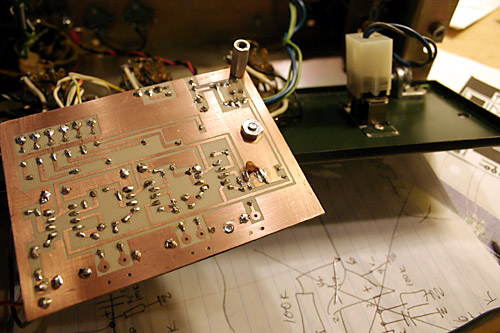Home > Studio Recording DIY Projects> Altec 1599A Upgrade
I'm skipping a few steps... if you want, check out my post about the PSU for more detailed PCB making instructions. Anyways, I spray painted the component side of the PCB flat black for a different look! I also started stuffing components. As I insert the component on the PCB, I highlight the component with a yellow marker on the schematic diagram.

Here, you can see the progression from schematic design, to PCB layout, to finished board!
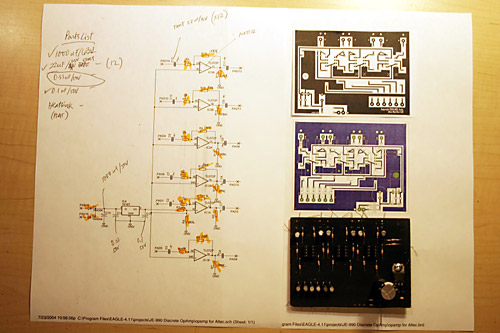
Next step was removing the original Altec PCB board and replacing it with my own PCB. I hooked up the transformer leads to my PCB, and the six individual preamp outs to my PCB input terminals. Hooked up an amplifier/speaker at the outputs, connected a tape deck player on the inputs, then turned power on...
then...
Houston, we have a problem!
From the speaker came a horrible, loud, static-like noise! It wasn't working. At this point, I'm kinda confused because I prototyped the circuit on my breadboard and it worked fine without any problems. I checked my schematic and my PCB design and everything was correct. I did some component substitution though... on my prototype, I used tantalum capacitors but on this one I used electrolytic capacitors (cheaper!). Even then, it shouldn't make this noise. I substituted tantalum capacitors in the signal path using alligator clips and it didn't improve the situation... so the problem is somewhere else.
On my prototype, I used a ceramic capacitor in parrallel with R4 (see schematic above)... could this tiny-itsy-bit capacitor be the solution to my problem?
I checked the output of my PCB on my oscilloscope... it was nasty... oscillation going wild. No wonder I'm hearing this horrible noise.
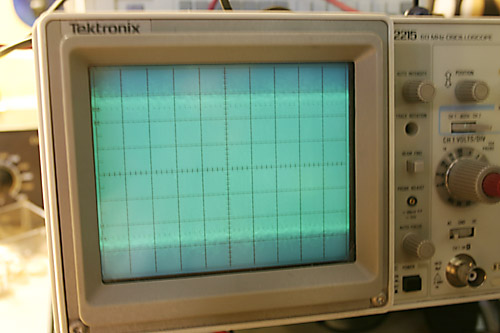
I began using bypass capacitors on R4 using different values... found one, and it removed the static noise... but looking at the oscilloscope, I can still see there's some left.
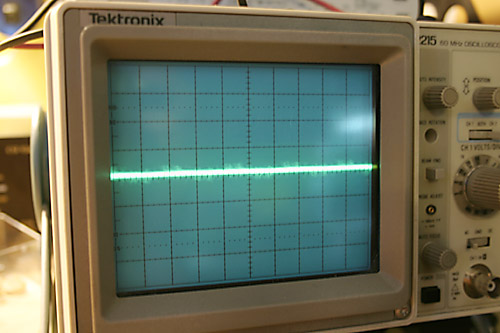
I tried another ceramic capacitor... better, but not quite there yet.
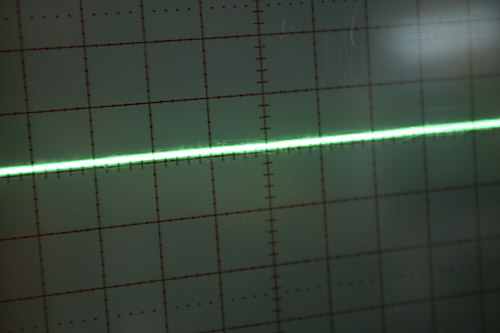
Finally, tried another one. Success! I think this is the best of the bunch!
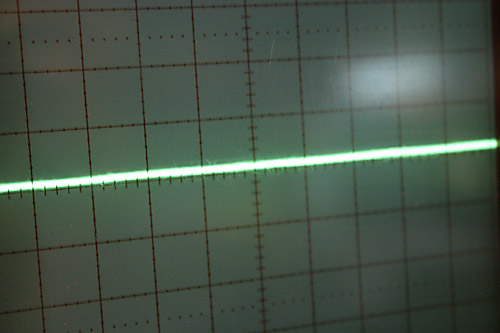
So I just soldered the ceramic capacitor in parallel to R4. Anyways, I'm happy... the noise is gone, the sound is pure and quiet.
